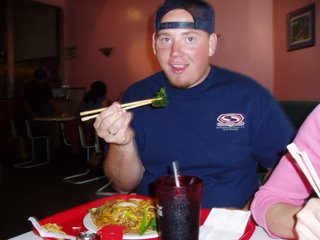Book Reflection - Urban Life: Readings in the Anthropology of the City
This anthropological research book is a collection of case studies collected and edited by George Gmelch and Walter P. Zenner. There are six major sections that the case studies are sub-divided into including The City in History, Urbanism, Urban Fieldwork: Anthropologists in Cities, Migration and the Adaptation of Migrants to City Life, Urban Class and Family, and Globalization and Transnationalism.This study also brings up the use of ethnographic research in cultural anthropology. Ethnography is referring to the anthropological study of specific people groups - namely along ethnic lines. One author describes ethnography practically by stating, "Ethnography involves long-term, close-up, personal observation and listening to people in the context of their everyday lives" (280). It is important to note that ethnography is often done with a very specific context in mind, as was the case with the studies included in the book. "Ethnography cannot achieve a balanced representation of all perspectives.... [it] creates a specific point of view" (153-4). Another author notes how ethnography helps in his research. He writes,
Since much of people's own experience of daily life, social activities, local institutions and so forth is shared by many if not most of their family members, coworkers, or neighbors, there really aren't a lot of people with whom they talk who don't already understand the ins and outs of their lives. So, I often find that interviewees are almost eager to tell me about their lives, since everyone else they know either already knows the stories or doesn't care about them. Part of this, of course, is the time-tested advantage of being an ethnographer in a culture other than one's own. In Japan at least, as a foreigner, I can ask about the simplest things, things that even a six-year-old child ought to know. Very rarely does anyone think it odd that I ask (157).
The section on migrants was one of particular focus for me, due to my current work in an immigrant neighborhood as well as my continuing interest to work in immigrant communities after I have completed my last year in seminary. In one study, the author mentions the contrast in worldviews between rural and urban peoples (202). Often rural individuals and communities have a very homogeneous worldview that has remained the same or with very little change for a long time. When these individuals enter an urban setting to look for work or other needs, they are confronted with a variety of worldviews. This can be a very difficult time for many of them, but is also an important experience for people to have. Some people might disagree with this statement, but I think that it is a very positive thing that many westerners, particularly those in urban centers, find it very comfortable to encounter differing worldviews and/or beliefs. For those who follow Jesus, this is necessary for being able to contextualize the Gospel in order to reach them.
One very important theme in the discussion of immigration is return migration, and interconnected to this is transnationalism. Many of the immigrants from one country to another have a dream to make enough money to return to their home country and retire with a home and land of their own. In this book, there were many case studies of this being true. There were stories of West Indians from Barbados migrating to Britain in the wake of WWII to rebuild destroyed cities and counter the enormous loss of life Britain, rural Spaniards migrating to Germany and France between 1955-75 as part of the twenty-year "economic miracle," and the millions of Russian Jews and Italians who migrated to New York around the turn of the century until WWI. Often these immigrants had their feet in two societies - the new country and their home country.
One story is of Moises V., who was a Spaniard who took his family to Germany for employment. Two of his three children were born in Germany during the 12 years he lived there and all spoke German better than Spanish. After the 12 years, he and his family returned to rural Spain and were able to purchase a house and land. Immediately, the family was very important in that community. He mentioned, "I owe everything to Germany" (257). The story does not include how his children adapted to life in Spain. For many 2nd generation immigrants, they have many more connections to the new country and do not dream of returning to their parent's home country. There becomes a dilemma often for these families over this exact situation as the parents are deciding to return to their home country later in life.
Finally, I will end with a quote of the nature of our world today and the view of immigrants. Nancy Foner writes that, "Today," journalist Roger Rosenblatt notes, "When every major business enterprise is international, when money is international, when instant international experiences are pictured on TV, more people think of themselves as world citizens. Why should not immigrants do likewise?" (352).
Chew on that and feel free to post any comments here. Thanks for reading!


No comments:
Post a Comment